An Interview with Jesse Lee Kercheval
"But always when I would start drawing, something would happen, and often a much stranger story would begin to take form than what I would do in words alone."
At Autobiographix, we were excited to see a book from Fieldmouse Press come across our desks—as big fans of their online magazine for comics, SOLRAD, we are always interested to see what they publish. This latest work, French Girl, is a graphic memoir created by someone whose name has long been in the creative writing (“all word” as she succinctly puts it) world: Jesse Lee Kercheval. Nora remembers hearing the author of multiple books of poetry, fiction, and nonfiction at the Taos Summer Writer’s Conference, and reading her work in grad school classes. So, it was a delight to see the multi-hyphenate creator add another role as graphic artist. We are excited to introduce you to her comics and process in our latest interview, below.
Describe your comics journey—how did you get into making comics?
I think my entry drug, like many people I know, was Lynda Barry. I loved her Ernie Pook’s Comeek when it ran in my local Madison, Wisconsin alternative weekly, The Isthmus. Then I was lucky enough to have her as a colleague at the University of Wisconsin-Madison where, over the years, lots of my creative writing students, undergrad and graduate, took her comics classes. I would often have one of our shared students lead my writing workshop in a Lynda Barry writing and drawing exercise, like those that went on to be in her books Syllabus and Making Comics.
But except for participating in those brief class exercises, I never drew comics—in fact I never drew at all—until the pandemic. I was living in a rented apartment in Montevideo, Uruguay in March 2020 when Covid arrived and the country locked down. I was there to work on an anthology of Uruguayan women poets with a friend, but I couldn’t see her or go to the library to do research. I wanted to do something, anything that was not on my laptop and was not reading the (very bad) news. I bought a box of colored pencils and just started to draw. I made myself do a “sketch” every day. I drew myself as a mouse, as a sheep, as a monster. And then over the next two years, that art turned into graphic essays and eventually into my graphic memoir French Girl. And in 2022, Lynda was gloriously generous and let me take her class, smuggling me in as a student. It was a life-changing experience.
How did you develop your voice?
One drawing at a time. Lynda’s class was amazing in helping me connect drawing (so new for me) to writing (something I have always done) or rather helping me learn to just let them happily exist together. But the drawings in French Girl owe more to some wonderful classes I took online with the Royal Drawing School in London, particularly with the British artist and graphic memoirist Sarah Lightman. She has a broad view of what sequential art/ comics can be and in her classes I moved away from the traditional comics panel format. Each page of French Girl is a single drawing, done in bright, richly colored soft pastels, with minimal text floating on the page.
What are some of the joys and challenges of making nonfiction comics?
The joy is how drawing—and I draw first—takes me to places I could not have predicted. When I started work on these pieces, I’d already written and published what I now think of as my “all word” memoir, Space, about growing up in Florida during the moon race. At first, I wasn’t sure I had anything left to say (or draw). But always when I would start drawing, something would happen, and often a much stranger story would begin to take form than what I would do in words alone. For example, in the book “Wolf” tells a family story about my great-grandmother as a variation of “Little Red Riding Hood.” It started with a drawing of my mother making a shadow puppet and I’d drawn half the images before I knew where it was going.
The challenge, for me, is how long it takes, how much work doing comic or graphic memoir is. I have written novels, a memoir, books of short stories and poems. I know that writing takes time. But graphic narrative/ comics, drawing AND writing, takes so much more. But I do love it.
What would you want readers to know about French Girl?
French Girl is a series of stories that blend art and text to explore my relationship with my mother, my childhood in France and Florida, my experiences as a mother and tell the story of my life. Sometimes it is brutally realistic, sometimes dreamlike and surreal. Each story has its own voice and visual style.
I have never been happier about a book. Or more scared to have one come out! But Fieldmouse Press has put together a gorgeous book and I am excited to have the work out in the world.
Jesse Lee Kercheval was born in France and raised in Florida. She is a writer, poet, and visual artist Her memoir Space, about growing up in Florida during the moon race, won an Alex Award from the American Library Association. In 2020, during the pandemic lock down in Uruguay, she began drawing for the first time in her life, posting one drawing a day on social media where they developed a large following. Her graphic narratives now appear regularly in literary magazines and her graphic memoir, French Girl, will be published in August by Fieldmouse Press.







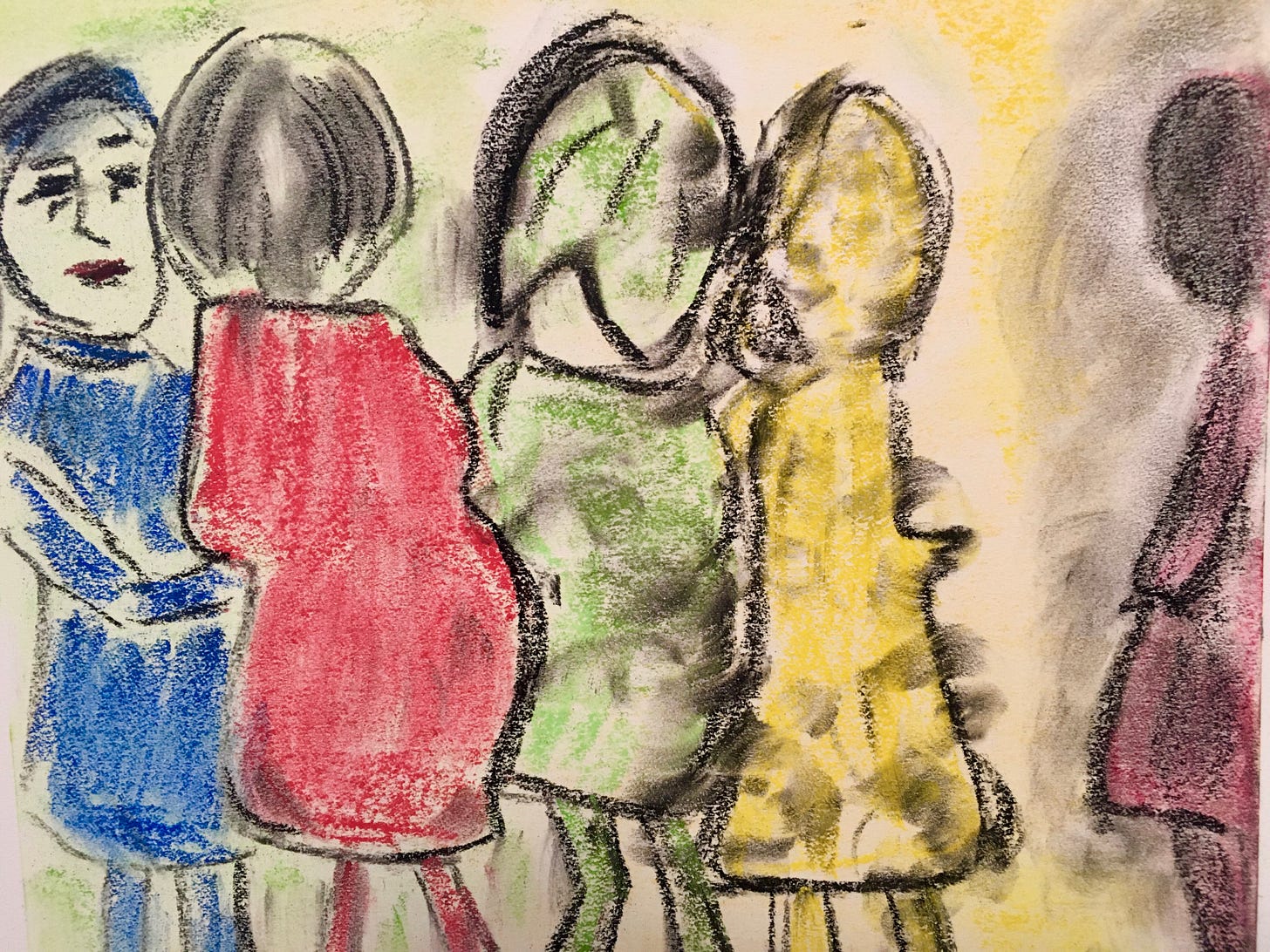
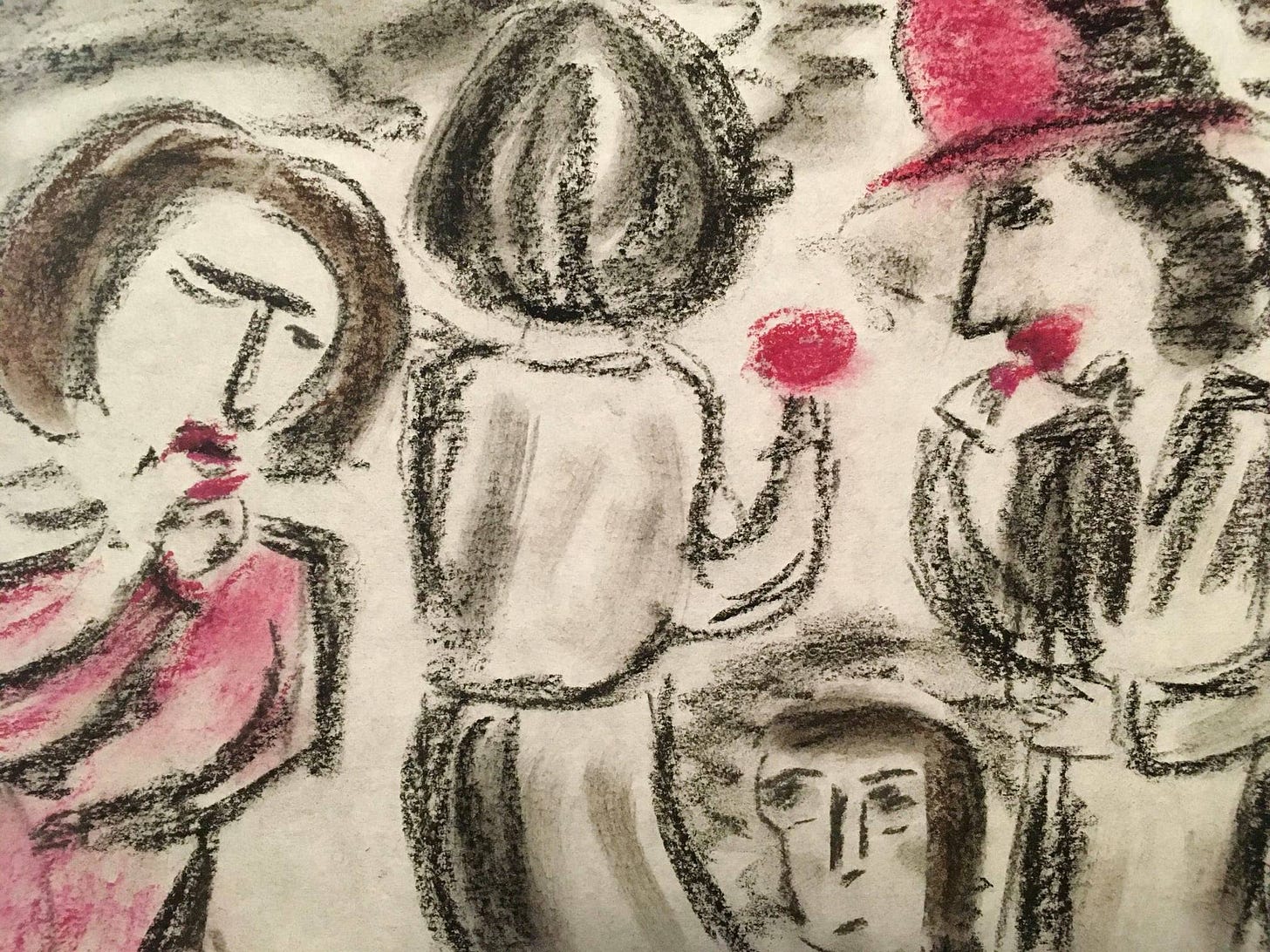
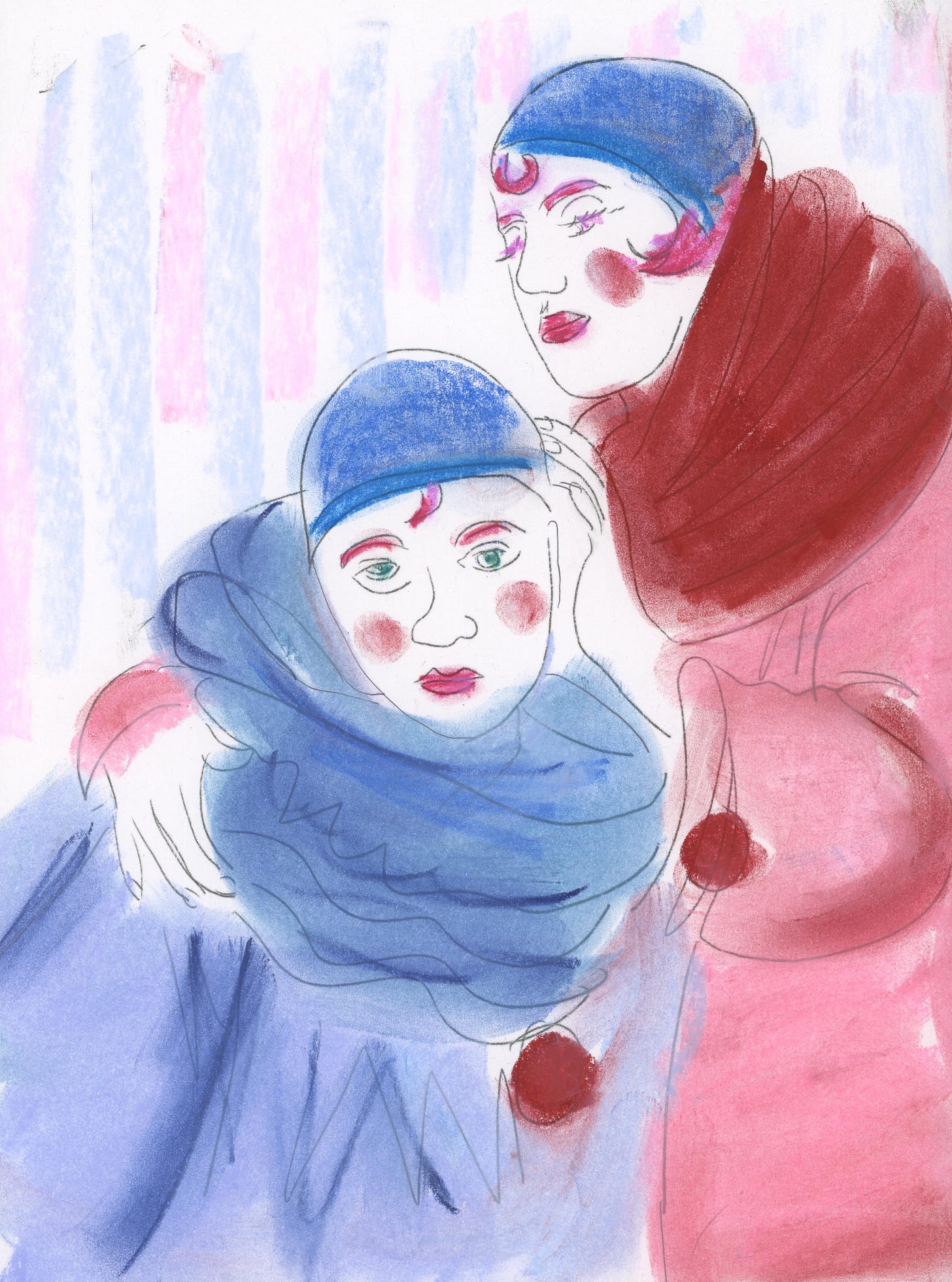
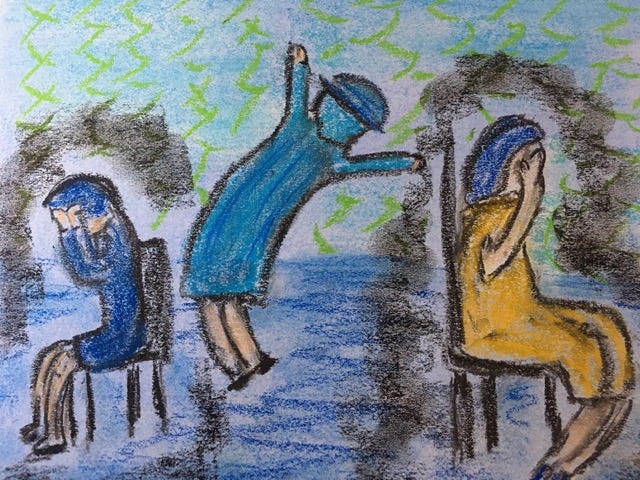
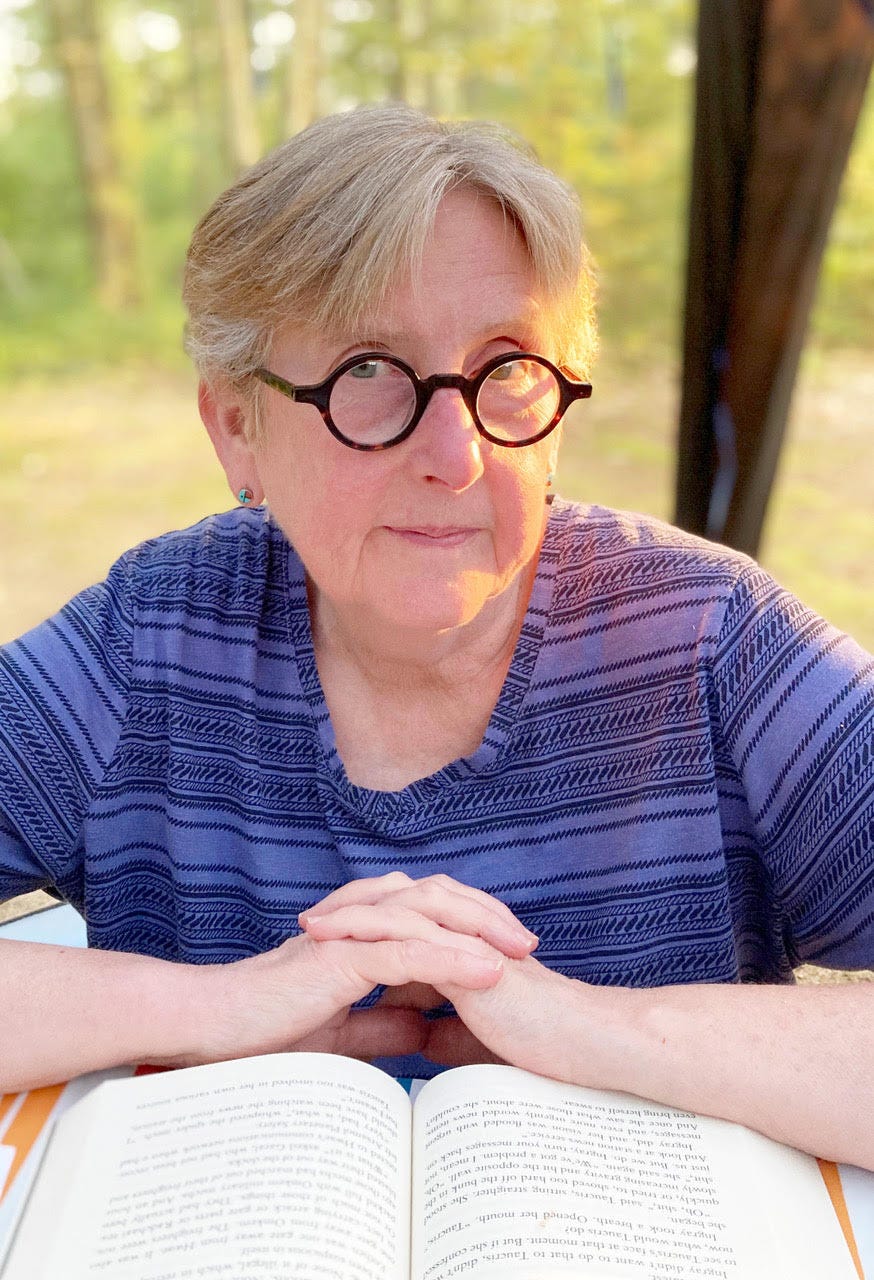
I love this story, and I can't wait to read the book!